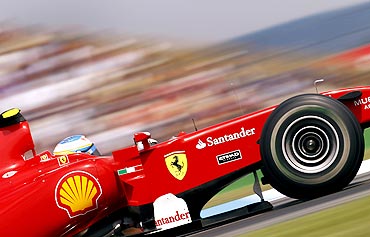
Whatever the colour of the car, from Fernando Alonso's red Ferrari to Michael Schumacher's silver Mercedes, Formula One is picking up speed towards a greener future.
While the lifting of a ban on 'team orders' made the headlines, the more momentous news emerging from a meeting of the governing International Automobile Federation (FIA) in Monaco last week was to do with future engine rules.
The FIA announced that from 2013, engines would be reduced from the current 2.4-litre V8s to four-cylinder 1.6-litre turbocharged units with a rev limit of 12,000rpm and linked to hybrid kinetic energy recovery systems (KERS).
The switch, it said, underlined "a commitment to improving sustainability and addressing the needs of the automotive industry".
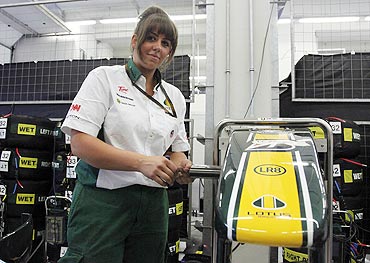
It also re-positions the sport in a much more environmentally-friendly arena with the engines, whose development cost has been put at around $150 million, consuming at least 35 percent less fuel.
"Formula One has had a hard look at itself and said 'We've got to be more relevant', "Team Lotus owner Tony Fernandes, whose cars are already painted green, told Reuters in an interview at the weekend.
"I think with this new engine technology we become much, much more relevant.
"I think it's a fantastic time. I think it's great that Formula One is now going to be a driver and a leader in terms of environmental technology," added the Malaysian aviation entrepreneur.
"Thirty-five percent less fuel is amazing. Imagine what that would do to the world if the technology being used in Formula One can be brought to all cars and reduce fuel consumption by 35 percent."
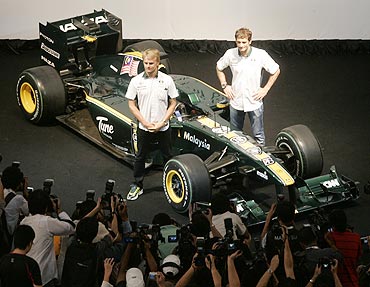
Those thinking that their regular 1,600cc family runabout has as much, if not more, poke should think again.
According to independent engine maker Cosworth, the combination of the turbo engine and hybrid systems will produce more than 700bhp and deliver the same speeds as at present.
With low drag setup, lap times could even be quicker. And, all this with far less of a thirst for fuel.
Put in ordinary motoring terms, the 35 percent saving should translate into a reduction of 85-90 litres of fuel per car per race.
"If you think that the average road car has a 70-75 litre fuel tank, then more than a tank of fuel is not going to be used. It's massive," Cosworth F1 head Mark Gallagher told Reuters.
The engines will sound very different -- a big consideration to petrol heads who treat the high-pitched scream of a V8 at full throttle with the same rapt reverence as a classical music devotee listening to the Vienna Philharmonic.
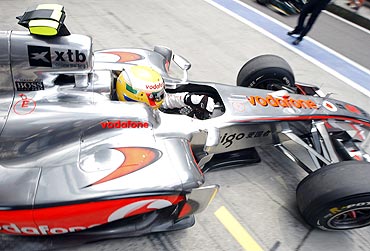
However, as Gallagher pointed out, the twin turbo cars used by drivers such as Alain Prost and Ayrton Senna in the early 1990s also produced only 12,000 rpm, and that period is regarded with considerable nostalgia.
The changes are all part of FIA president and former Ferrari team boss Jean Todt's determination to move Formula One far from the old image of a gas-guzzling, cash-burning, fossil-fuel-dependent sport that cared little for its surroundings.
Plenty has been done already by individual teams in the last few years.
McLaren announced this week that they had become the first Formula One team to earn Carbon Trust certification for achieving annual savings of more than 1,500 tonnes of C02 emissions.
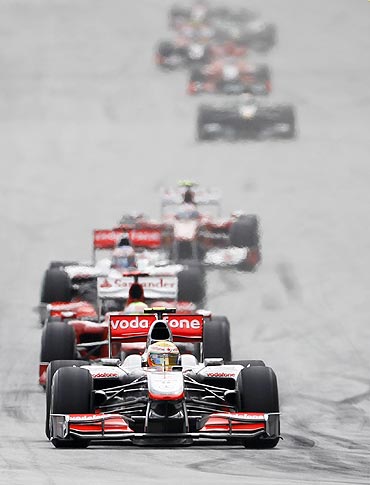
Gallagher said Cosworth had bought five sets of equipment so that they could use less polluting but slower sea freight rather than air transport. Teams have also agreed to reduce the number of staff attending races.
Todt's mission is to speed up things globally.
"I feel sometimes the motorsport community has not yet completely understood that the times are changing," he told Reuters back in October.
"If you are looking at what is happening at the Paris motor show, there are a lot of electric, hybrid, hydrogen cars and I really feel that racing must be a display for all those technologies.
"And it will probably encourage manufacturers either to stay, join or come back," he said.

Honda, Toyota and BMW have all left Formula One in recent years for cost and strategic reasons but the engine changes could revive the sport's allure for manufacturers and sponsors alike.
Volkswagen, whose Audi brand has long been courted by F1, have already made encouraging noises after being involved as outsiders in drawing up the new engine specification.
"The conditions for a possible entrance of the Volkswagen group have been created," the company's motorsport head Hans-Joachim Stuck told German media, while adding that nothing was decided yet.
KERS, tried out in 2009 but dropped by all the teams for this season as part of cost-saving measures, will be back next year and is here to stay.
"I think in a second iteration it will be quite a lot better," said Williams co-owner Patrick Head.
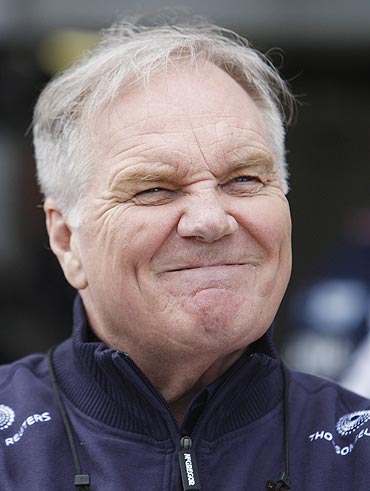
"One can say 'isn't it just a load of bullshit?' and 'is it really appropriate for Formula One?'. But tell me one motoring magazine now that isn't full of all the electric vehicles or hybrid vehicles," Head added.
Gallagher agreed all the changes in the pipeline would help to shift the sport into a better place.
"There is more fuel burned by spectators attending the Tour de France (cycle race) than in the entire Formula One world championship," he said.
"Formula One has an unfair image of gas-guzzling and this new technology absolutely nails that criticism."